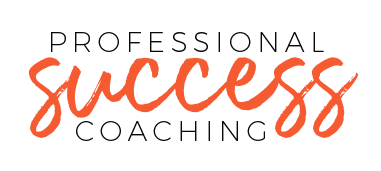The Power of Transferable Skills
Host Sheila Boysen-Rotelli is explaining why transferable skills give you more freedom and creativity in your job search. Everyone has them. It just takes a little bit of self-reflection to realize what your transferable skills are!
Episode Highlights:
There’s a ton of value in taking time to understand transferable skills and what yours actually are
Transferable skills come into play when you’re looking for a new job or to transition within the same company
Don’t be the person that gets in your own way and tells yourself “no” before someone else has the chance
Everything starts in our own head, so having the right mindset is vital to take on new assignments
Attacking our own self-confidence and skills takes us out of an opportunity that could help us develop additional skills
If people could recognize their transferable skills, they would work at jobs that they truly enjoy
Come up with a simple mantra, such as “I can do anything”
Many people make the mistake of thinking that they just don’t have any transferable skills
Define your transferable skills that relate to the job that you have your eye on
Tailor your resume to the specific job that you are applying to by highlighting your relevant transferable skills
Make a list of all of your skills in management, research, technical, relationship, and any other segments
Freely brainstorm every skill no matter how small or insignificant you might think they are
Use past performance reviews and people that you’ve worked closely with to see what skills of yours that others have appreciated
Self-reflection takes time and work, but it will serve you very well for years to come
Organize your list however you would like, but Sheila suggests these 3 sections
Communication: Speaking effectively, building consensus amongst groups, negotiating, developing rapport, etc.
Organizing/Planning: Forecasting, analyzing alternatives, managing budgets, meeting deadlines, etc.
Operational/Technical skills: Building something, software/hardware skills, specific knowledge, hard skills, etc.
Think through each skill in order to understand how transferable each one
Is it something that can be applied in a different job or environment?
How can it be applied in a different job or environment?
Come up with a measurable accomplishment of your own that relates to that transferable skillj
There are a variety of ways to use your transferable skills to get the job that you wan
Networking events are a great time to explain to people what you want to be doing in your next opportunity
During an interview, focus on how you have used your transferable skills in specific situations in your past jobs
3 Key Points:
It takes a growth mindset to take skills that you have learned in the past and transfer them into something new.
When you define and practice your transferable skills, it’s a great time to update your resume and tailor it to the specific job that you are applying to.
Transferable skills can be acquired through a multitude of avenues, such as on-the-job experience, volunteering, and hobbies that you enjoy during your free time.
Tweetable Quote
“A lot of times, we’re the first person to tell ourselves ‘no.’” - Sheila Boysen-Rotelli
“If you think you can do a thing, or think you can’t do a thing, you are right.” - Henry Ford
“Transferable skills, most basically, are any talents or abilities that you have that can be used in many different jobs or career paths.” - Sheila Boysen-Rotelli
Resources Mentioned:
Contact Sheila at sheila@professionalsuccesscoaching.com
Fast Track Your Job Search: fasttrackyourjobsearch.com

